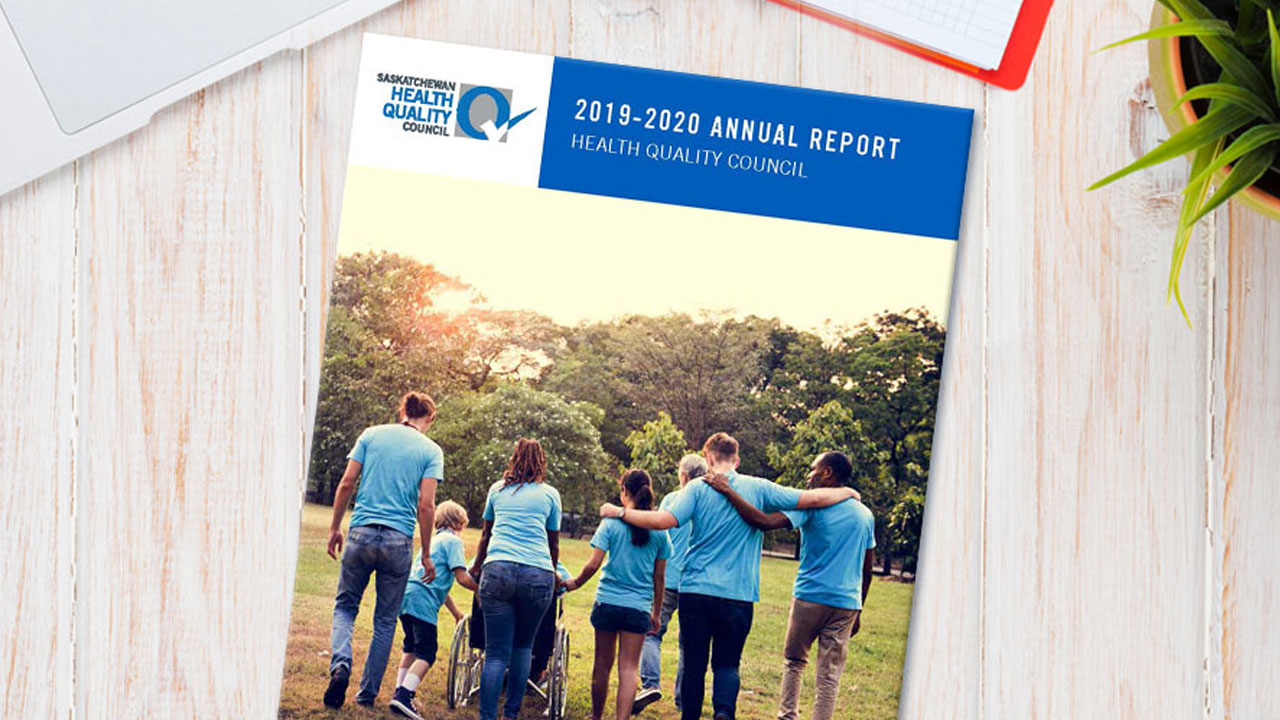During 2019-2020, the Saskatchewan Health Quality Council (HQC) continued to support Saskatchewan’s health care system through education, improvement initiatives, and research.
HQC’s annual report, tabled in provincial Legislature today, contains an overview of the work the organization led and participated in over the past year towards accelerating improvement in the quality of health and health care in Saskatchewan.
Tracey Sherin, HQC CEO, said that over the past year HQC has been continuing their new direction of improving the factors that contribute to good health for every person in the province. “It is an exciting time for HQC as we build relationships with other organizations and communities,” Sherin said. “We are committed to working with our system partners to help the people of Saskatchewan live happier, healthier lives.”
Work highlighted in the report includes:
- Improving team-based care in the community, hospital, and all points in the health system: Made the BestPractice Primary Care Panel Reports available to all Saskatchewan Family Physicians. (Page 22)
- Establishing a plan for addressing systemic barriers to First Nations and Métis health and well being: Began to develop and implement a cultural responsiveness framework for HQC and build formal and informal partnerships with First Nations and Métis communities in the province. (Page 30)
- Accelerating the use of evidence to address social determinants of health: Established a framework to translate to the Saskatchewan context leading practices for addressing social determinants of health. (Page 31)
- Working with system partners to offer a provincial integrated learning system: Collaborated with the SMA and SHA to create the Quality Improvement Learning Collaborative (QILC) which held its first workshop this year. (Page 35)
- Collaborating with research partners to generate evidence for improvement and decision making in Saskatchewan’s health care system: Completed a Drug Safety and Effectiveness Network/Canadian Network for Observational Drug Effect Studies (DSEN-CNODES) project that looked at improving and measuring the appropriate use of a class of drugs called fluoroquinolones. (Page 37)
“Collaboration is a staple of HQC’s work, and our progress this year is proof of our commitment to working with our partners, both old and new, towards improving the factors that contribute to good health,” said HQC Board Chair, Dr. Susan Shaw. “Change doesn’t happen overnight – it happens in small, systematic increments. Through collaboration, I believe we can have a positive impact on the lives of all the people in Saskatchewan.”
To view a copy of the 2019-20 HQC Annual Report, please click here.



